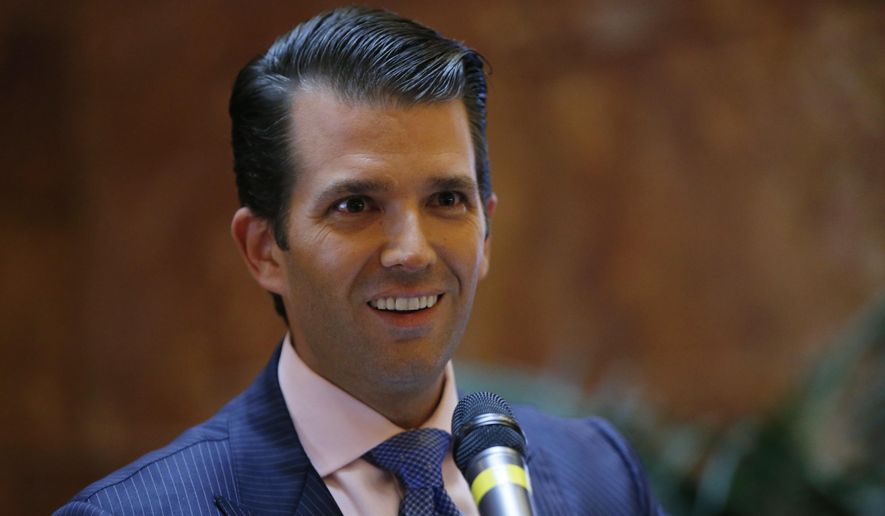The government watchdog group Common Cause filed complaints Monday with the Justice Department and Federal Elections Commission over Donald Trump Jr.’s meeting with a Russian lawyer during the presidential race.
The group claimed the meeting, which was arranged by the lawyer under the pretext of providing damaging information about Hillary Clinton, violated the election law prohibiting solicitation of donations from a foreign national.
“These laws exist to safeguard U.S. national security and Donald Trump Jr. appears to have violated the law in order to obtain information helpful to his father’s campaign for the presidency,” said Karen Hobert Flynn, president of Common Cause.
Common Cause argued that the proffer of opposition research, whether genuine or not, represented a contribution to the Trump campaign. The law defines a contribution as anything of value given for the purpose of influencing a federal election.
“These actions are part of a troubling pattern of President Trump, members of his family and key advisers acting as if they are above the law,” Ms. Hobert said. “Trump’s family and inner circle are not above the law, and we urge the Justice Department and the FEC to fully investigate this apparent violation and hold Trump Jr. and the campaign accountable if appropriate.”
The complaint, however, appeared to stretch the legal definition of “contribution,” said James A. Gardner, an election law scholar at University at Buffalo School of Law.
“Ordinarily, the term ’thing of value’ in campaign finance law refers to things that, like money itself, have value as a resource that the recipient can transform into a candidate’s campaign expenditures,” he said. “I would think that there could be constitutional problems in construing ’thing of value’ so broadly as to include the voluntary provision of information, [such as] speech.”
The New York Times first reported the meeting between President Trump’s eldest son and the Kremlin-connected lawyer.
The younger Mr. Trump, who worked on his father’s presidential campaign, said the lawyer claimed to have damaging information about the Clinton campaign but then focused the meeting on restarting a defunct program for U.S. adoptions of Russian babies.
The Kremlin has denied any knowledge of the activities of the Russian lawyer, Natalia Veselnitskaya.
The meeting at Trump Tower in June 2016 with Ms. Veselnitskaya was also attended by Mr. Trump’s son-in-law and top adviser Jared Kushner and Trump campaign chairman Paul J. Manafort.
The younger Mr. Trump and not previously disclosed the meeting. However, Mr. Kushner and Mr. Manafort had disclosed the meeting on federal forms, which were described to the newspaper and provided a basis for the story.
The younger Mr. Trump said that during the meeting Ms. Veselnitskaya claimed to have information that “individuals connected to Russia were funding the Democratic National Committee” and supporting Clinton.
“No details or supporting information was provided or even offered,” the younger Mr. Trump said in a statement. “It quickly became clear that she had no meaningful information.”
He said no details or supporting information was ever offered, and that his father was unaware of the meeting.
The president’s opponents in the U.S. seized on the story as fresh evidence of possible collusion. The FBI has uncovered no evidence of collusion after a yearlong investigation, but investigations continues, including a Justice Department special counsel probe that began in May.
• S.A. Miller can be reached at smiller@washingtontimes.com.




Please read our comment policy before commenting.